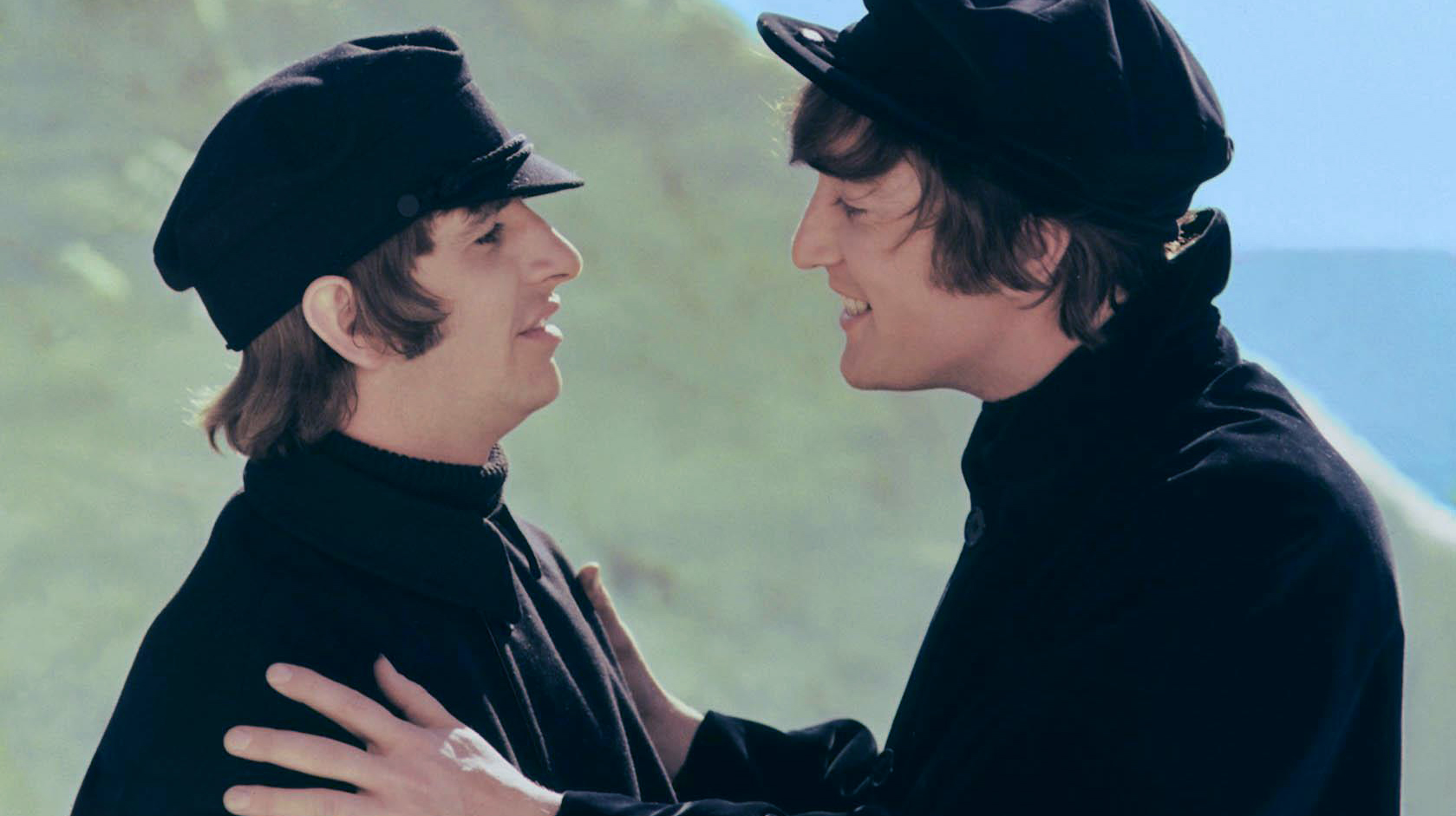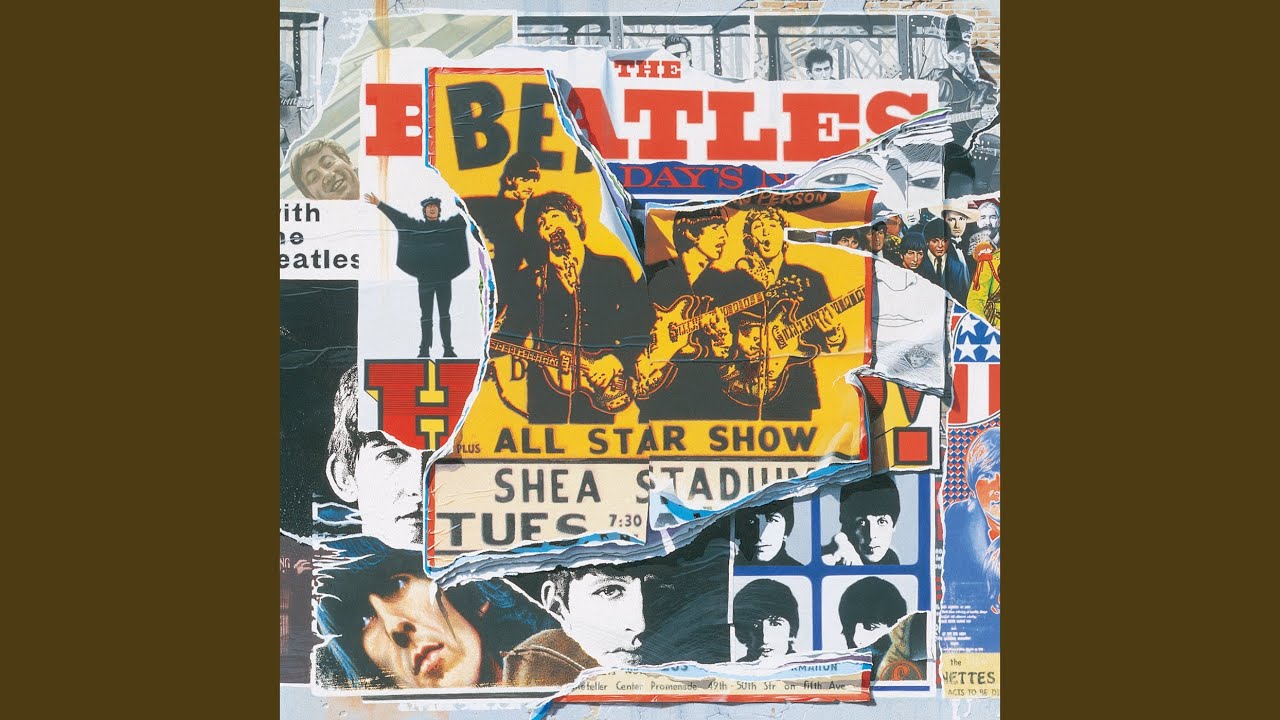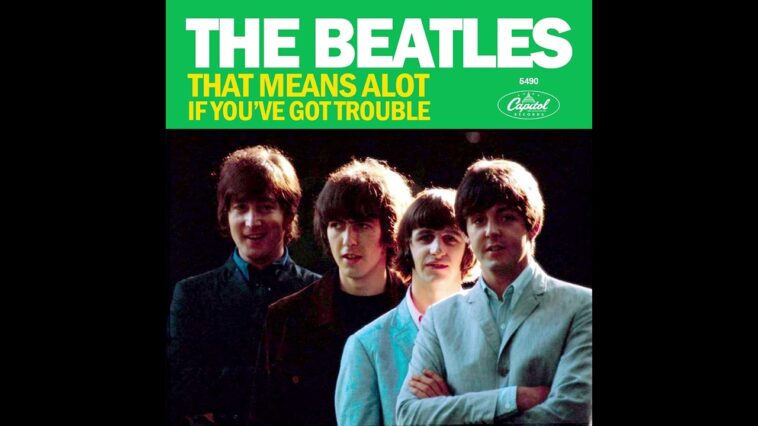By the time the Beatles called it a day in late 1969, they’d recorded and released more than 200 songs — most of them originals — and left dozens more in the vault. While the bulk of those unissued tracks ranged from rough demos to jams, several were completed recordings that, for one reason or another, they rejected.
Among them was a song that was the first ever written expressly for drummer Ringo Starr: “If You’ve Got Trouble.” Composed by John Lennon for inclusion on 1965’s Help!the song was a riff-driven rocker built around the I-IV-V chords common to blues and rock. In many respects it bears similarity to a few other Beatles tracks from this period, including “She’s a Woman,” “I’m Down” and “I Feel Fine,” another Lennon-composed riff rocker, albeit one with a great deal more sophistication than “If You’ve Got Trouble.”
From the start of the Beatles’ recording career, Starr was given a vocal spot on each of their albums (except for 1964’s A Hard Day’s Night) in order to please his rabid fan base. It may be hard to fathom today, but for at least the first year of Beatlemania, Starr was the most popular Beatle, certainly in America, where his friendly, down-to-earth demeanor made him a favorite. It’s little wonder he got his own sizable scene in the Beatles’ debut film, A Hard Day’s Nightand was the main focus of its followup, 1965’s Help!
Because Starr wasn’t a songwriter, he sang either covers — “Boys,” on 1963’s Please Please Meand “Honey Don’t” on 1964’s Beatles for Sale — or inferior cast-offs composed by Lennon and McCartney, such as “I Wanna Be Your Man,” a throwaway from 1963’s With the Beatles, and “What Goes On,” from 1965’s Rubber Soul.
“If You’ve Got Trouble” falls into the latter category. With lyrics like “you can’t be as worried as me” and “you think I’m soft in the head,” it played off Ringo’s popular image as a lovable, sad-sack everyman.
According Ray Coleman, the former editor-in-chief of Melody Makercredit for the song goes entirely to Lennon. As he revealed in an article in the magazine’s February 27, 1965 issue, Lennon admitted it was not his finest work.
“I wrote it,” Lennon told to Coleman, who was present at the recording session for the track on February 18, 1965. “It’s the funniest thing I’ve ever done. Listen to the words,” he said laughing. “I didn’t expect anybody to want to record it.”
Despite Lennon’s obvious disregard for the tune, the Beatles put a fair amount of effort into the recording. The basic track — drums, bass guitar and rhythm, played by George Harrison on one of his Gretsch electric guitars, according to producer George Martin’s notes — is energetic and polished. As Coleman noted in his report, McCartney was happy with the vibe the group was creating.
“Paul thought the sound was one of the best ever,” he wrote.
The song is notable as one of the first on which McCartney played lead guitar, joining George Harrison to perform its driving riff with his Epiphone Casino hollowbody electric. Interestingly, in the same week that it was recorded, the Beatles also cut “Ticket to Ride,” “Another Girl” and “The Night Before,” three Help! tracks that were the first to feature McCartney playing guitar solos and leads.
“Hey, listen, hear that play by Paul?” John asked Coleman at one point. “He’s been doing quite a bit of lead guitar work this week… Listen on that one. George and Paul are playing the same break, exactly, both playing in different octaves.”

McCartney’s sudden emergence as a lead guitarist during this week in the group’s history may help to explain Starr’s rather unusual shout out leading into the song’s guitar solo. Up to then, he’d made a habit of announcing solo breaks on previous recordings: On “Boys” he cried out, “All right, George.” For “Honey Don’t,” he exclaimed, “Rock on, George, one time for Ringo.”
But on “If You’ve Got Trouble,” he says the rather unusual, “Oh, rock on, anybody!” Perhaps they had yet to decide whether Harrison or McCartney would play the solo; according to George Martin’s notes, Ringo’s vocals (which he double-tracked) were recorded before the solo was laid down.
That job eventually fell to Harrison, who, for the evening’s final performance, delivered what is easily his most uninspired solo in the Beatles’ catalog. Perhaps everyone realized by the night’s end that the song was hopeless. Following a mix session on February 20, “If You’ve Got Trouble” was shelved.
Remarkably, also on February 20, the Beatles recorded yet another song that wouldn’t be released for years. “That Means a Lot” was a McCartney tune played in a heavy, R&B style, with a thudding beat and a medium tempo similar to “Ticket to Ride.” It would be subjected to a remake one month later, on March 30. Dissatisfied with the results, the Beatles gave the song to American singer P.J. Proby, whose version reached number 24 on the U.K. charts that September.

“If You’ve Got Trouble” languished until 1984, when former Beatles engineer Geoff Emerick prepared the recording for inclusion on the group’s unreleased rarities album, Sessions. He swapped around the verses and made a few cuts to shorten it by 20 seconds. But after the surviving Beatles blocked the album’s release, the recording remained in the vault — although Emerick’s edit did find a release in the bootleg market.
“If You’ve Got Trouble” wouldn’t be officially issued, and in its original full length, until the release of the Beatles Anthology 2 compilation in 1996. Judging by the reception it received, they were right to keep it under heavy wraps. Music critic Ian MacDonald railed against its lyrics and melody, calling the tune “the only unmitigated disaster in the Lennon–McCartney catalog.”
Even George Harrison was unsparing in his criticism. “It’s the most weird song,” he commented in the Beatles’ Anthology book. “I’ve no recollection of ever recording it. It’s got stupid words and is the naffest song. No wonder it didn’t make it onto anything.”
